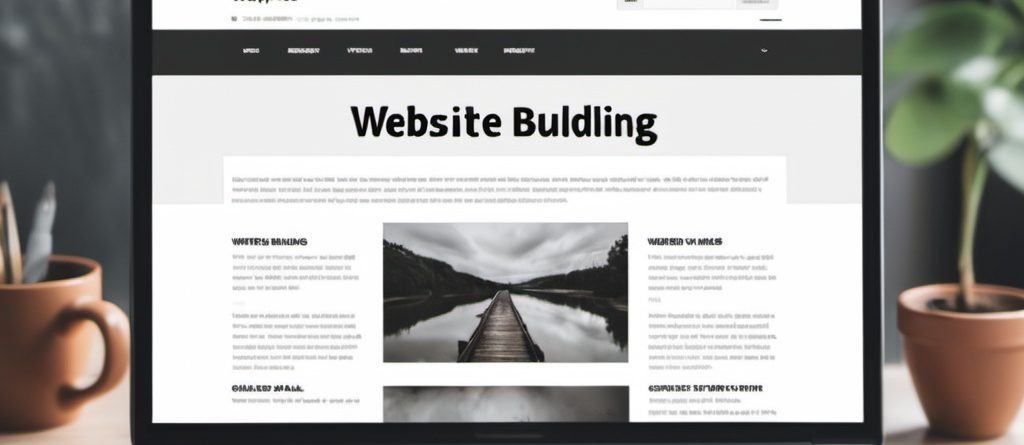Building a website can be a daunting task, especially if you’re not a developer. WordPress has become one of the most popular platforms for website building, and one of its biggest strengths lies in the availability of pre-made themes. These themes make it easier for anyone, from beginners to experienced web designers, to create beautiful, functional websites without starting from scratch. However, like any tool, using WordPress themes comes with its advantages and drawbacks. Here’s a detailed look at the pros and cons of building a website using WordPress themes.
Pros of Using WordPress Themes
1. Cost-Effective
One of the main benefits of using WordPress themes is that they can be extremely cost-effective. Many themes are available for free, and premium themes (those with more advanced features and better support) are relatively inexpensive compared to hiring a professional developer. This makes WordPress themes a budget-friendly solution for startups, small businesses, and individuals.
2. Ease of Use
WordPress themes are designed to be user-friendly. With drag-and-drop functionality and intuitive customization options, you don’t need to be a coding expert to build a professional-looking website. Many themes come with demo content that you can import, giving you a head start and saving time on design and setup.
3. Quick Setup
With a WordPress theme, you can have a website up and running in a matter of hours, rather than days or weeks. Most themes are plug-and-play, meaning you just install them, make a few tweaks, and your site is ready. This quick turnaround is perfect for those who need a website launched quickly.
4. Wide Variety of Design Options
There are thousands of WordPress themes available, offering a wide variety of styles and designs. Whether you’re looking for a minimalist blog, a robust e-commerce site, or a creative portfolio, there’s likely a theme that suits your needs. This variety makes it easy to find a look and layout that aligns with your brand.
5. SEO-Friendly
Many WordPress themes are built with search engine optimization (SEO) in mind. They often come with clean code, fast loading times, and mobile responsiveness, all of which contribute to better search engine rankings. Additionally, you can easily integrate SEO plugins like Yoast or All in One SEO to further optimize your content.
6. Regular Updates and Support
Premium themes usually come with regular updates to ensure compatibility with the latest version of WordPress and to patch any security vulnerabilities. Many theme developers also offer dedicated support, so if you run into issues, you can get professional help.
Cons of Using WordPress Themes
1. Limited Customization
While WordPress themes offer a range of customization options, they can still be limiting if you have a very specific design in mind. Unless you’re comfortable with coding or hiring a developer, it can be challenging to make major design changes that go beyond the theme’s built-in options.
2. Potential Bloat
Some themes are packed with a variety of features and functionalities that you may never use. This “bloat” can slow down your website, affecting its performance and load times. It’s essential to choose a theme that is lightweight and optimized to avoid unnecessary slowdowns.
3. Compatibility Issues
Themes are developed by third-party developers, and sometimes they can conflict with certain plugins, especially if they aren’t regularly updated. These compatibility issues can lead to broken features or layout problems, which may require troubleshooting or switching to a different theme.
4. Security Vulnerabilities
Not all themes are created with the same level of security. Some free or poorly coded themes can have vulnerabilities that put your website at risk. It’s crucial to choose reputable themes, preferably those with good reviews, regular updates, and security features. Using outdated or untrusted themes can expose your site to potential cyberattacks.
5. Lack of Uniqueness
Since WordPress themes are available to the public, there’s a chance that your website could look similar to others using the same theme. This lack of uniqueness might be a drawback if you’re aiming for a distinct, brand-specific design. Customizing a theme can help, but it may not provide the level of originality some brands require.
6. Dependence on Theme Developer
When you use a WordPress theme, you’re often at the mercy of the theme developer. If the developer stops updating the theme or fails to address bugs and compatibility issues, it could become a problem. This is why it’s wise to go with reputable developers who have a proven track record.
Conclusion
Using WordPress themes to build a website is an excellent option for many individuals and businesses, especially those with limited budgets or technical skills. The ease of use, affordability, and wide range of design options make themes an attractive choice for quick website development. However, it’s important to be aware of the limitations, from customization challenges to potential security risks.
Ultimately, the decision to use a WordPress theme depends on your specific needs, goals, and resources. For many, the benefits far outweigh the drawbacks, but if you need a highly customized or unique website, investing in a custom-built solution might be the better route. Always research and choose your themes wisely to ensure they align with your project’s goals.



Leave a Reply